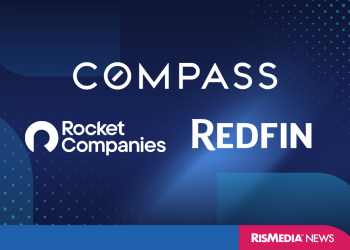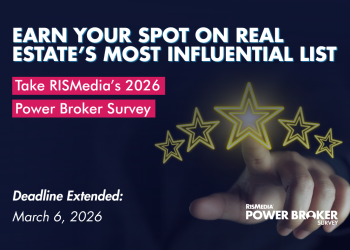The following information is provided by the Center for REALTOR® Development, with assistance from Lauren Hampton and the Podfly editorial team, and is a recap of Center for REALTOR® Development Podcast episode 15. (This is part 1 of a three-part Summer episode series that focuses exclusively on technology.)
Episode 15 of the Center for REALTOR® Development Podcast is the first in a three-part series on technology; this episode focuses on social media and how you can effectively use it to grow your real estate business. Monica’s guest, licensed Managing Broker, Realtor®, avid volunteer, and Major Donor, Marki Lemons-Ryhal has over 25 years of marketing experience. Marki has taught Realtors® how to earn up to a 2,682 percent return on their marketing spend. Marki has earned numerous awards, and has been featured in Forbes, The Washington Post, Homes.com, Realtor® Magazine, CBS News Chicago, and CBNC. In addition, she holds over 50 real-estate-related licenses, certifications, and designations.
Marki and Monica had a great conversation about social media. Here are some highlights that answer your top questions on the topic. To hear the entire conversation, be sure to stream the episode from the podcast website, or look it up on whichever podcast marketplace you subscribe to.
1. How are the different social media platforms different?
Facebook is good to reach large numbers of people because about two-thirds of internet users have a Facebook, regardless of age. Contrary to rumors, pretty much everyone is still on Facebook and its popularity is not diminishing. It’s just that each demographic uses Facebook in a different way. Marki goes into detail about these different approaches in the audio episode. Instagram is popular because we are a visual society, and we can get information quickly and succinctly on that platform. LinkedIn may in the long run be more useful for those in commercial real estate. For people who may be focusing on more niche markets, Snapchat and Pinterest can be other good platforms to utilize. Twitter is popular, but there is the character limitation, so a good way to utilize Twitter is to post photos and short videos.
2. Which social media platform should I use?
After defining your customer (or who you want your customer to be!), and looking at the demographics and profiles, pick the media that will best reach these potential clients. You want to engage with the tools they already use. “Basically what you want to do is give people what it is they desire, where they are. You’re never going to force a client to use your tool of choice,” explains Marki. As real estate agents, we often think about the social media channels we like and don’t like, but we have to put ourselves in the shoes of our consumers. This can help you shape your online presence so you’re reaching your exact target market in the most efficient way possible.
3. How do I easily incorporate social media into my work life, and workflows?
Marki talks about how to be intentional about marketing on your social media platforms. Marki and Monica both recommend time blocking; Marki does an hour every day Monday through Friday. If one solid hour is too much, you can break it up into smaller chunks. One effective approach is to “book” this work on your calendar to make sure you maintain discipline and consistency, which are the most important success factors in marketing, and especially social media marketing.
4. What’s a hashtag and how do you use one?
A hashtag is a pound sign followed by a word or a group of words. Hashtags can filter or streamline a conversation. People can search by hashtags, so it’s important to be honest and use your hashtags correctly. You might consider creating a branded hashtag custom just for you. Marki warns about being a little cautious when using hashtags because if you use something too generic, you might expose your competition. It’s a balance between using phrases that are commonly searched, but also set you apart from your competition.
5. How do I incorporate my community and my real life into social media?
Marki talks extensively about Community SEO, and how you can utilize social media to start showing up on the platforms you use. If you tag the location when you’re using social media, people will start to know who you are and the places you frequent. This will encourage face-to-face interactions, which have a far higher conversion rate than online marketing. You can do things in the community offline, but post it online. In this way, you can leverage social media to get your community activity onto the web. The focus on getting out in the community is important because people want to do business with people they trust and feel that they know on a personal level. Social media can help you “be known.”
6. What’s an underutilized or “sleeper” social media channel that people should look into?
Marki uses—with great success—the Facebook Messenger app to talk to potential clients and maintain networking connections. Facebook Messenger’s lists feature, where you can separate people into groups like you might on an email distribution, is extremely flexible. It serves as an extension of her client relationship management system. In the podcast episode, Marki goes into detail about specific ways she uses Messenger and Chat Bots to enhance her interactions with her customers.
7. What is the best content to create for social media?
Video’s appeal and adoption are exploding. A great way to create video content is to make live videos to preview open houses, highlight price changes, or communicate updates to the property. If there is a marketing event for the property, you would want to live stream that as well. Facebook, Instagram, and Snapchat all promote video content. Video content also lets you post or share across multiple platforms (including YouTube) without creating brand new content for each platform. Some apps Marki recommends are Quik by GoPro and Animoto. In a video, you can also share a landing/lead capture page so prospective clients can leave their contact information and you can add them to your CRM.
For much more about marketing, social media, and virtual tools for your real estate business, check out NAR’s e-PRO® Day 1 and 2 online bundle, which is the educational requirement for NAR’s e-PRO® certification. This certification aims to help real estate professionals broaden their technology skills to connect effectively with today’s digitally-savvy consumer.
Center for REALTOR® Development’s monthly podcast focuses on education in the real estate industry. It addresses formal education programs (such as those from NAR) and informal sources of industry knowledge (such as peers and mentors). Its intended audiences include REALTORS®, real estate professionals, allied professions (such as appraisers and lenders), educators, education providers, and consumers. To listen or subscribe, visit www.crdpodcast.com.
For more information, please visit RISMedia’s online learning portal from NAR’s Center for REALTOR® Development (CRD) and the Learning Library. Here, real estate professionals can sign up for online professional development courses, industry designations, certifications, CE credits, Code of Ethics programs and more. NAR’s CRD also offers monthly specials and important education updates. New users will need to register for an account.
For the latest real estate news and trends, bookmark RISMedia.com.











